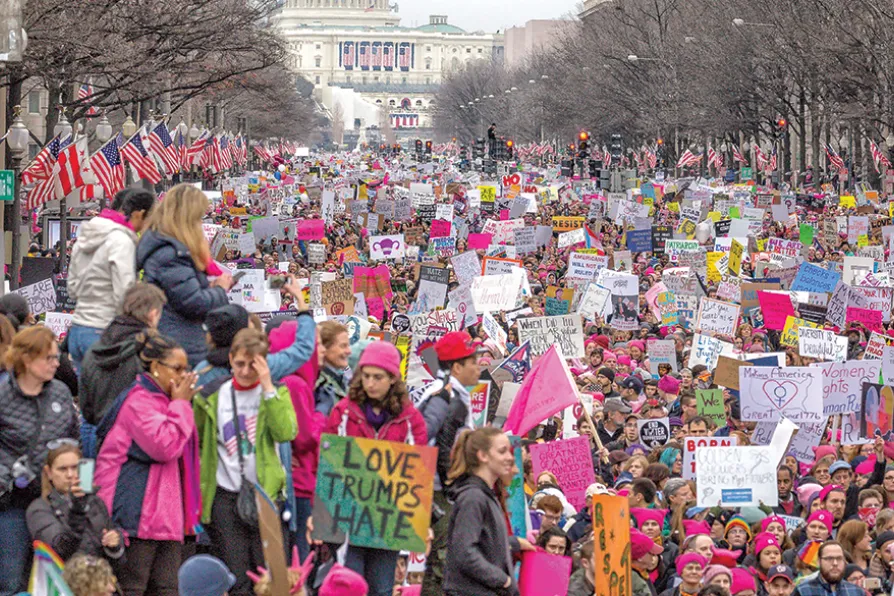RICHARD BURGON MP speaks to Ben Chacko about the Labour right’s complicity in the Mandelson scandal and the need for a total break with Starmerism if the party is to defeat Reform
Women’s liberation – the struggle continues…
Women have long been to the fore in protest and in the struggle for peace, justice and democratisation at huge risk to their personal safety and freedom, but it’s a battle that’s not yet won, explains CAROL STAVRIS

 ONE VOICE: Women's March in Washington DC, US, 2017
[Mobilus In Mobili/CC]
ONE VOICE: Women's March in Washington DC, US, 2017
[Mobilus In Mobili/CC]
ON International Women’s Day, we take inspiration from women’s long and arduous struggles against racism, for an end to poverty and oppression, for emancipation and for peace in a violent and dangerous imperialist world.
We celebrate feminist movements the world over which have helped to raise political consciousness to the necessity of class unity against the enemy of global capitalism.
The process of industrialisation began in Britain in the 18th century, spreading to other parts of the globe. The crushing exploitation of women workers in sweatshop factories drove them into organising themselves, taking on their employers in powerful struggles which forced economic and social change.
Similar stories

Communist Party of Ireland Statement on International Working Women’s Day 2025

Despite the harsh conditions they face, Iranian women have proved to be vanguards in the struggle for fundamental changes in our country, says Dr AZAR SEPEHR

Sixty years after his murder, it is up to all of us to defy ruling-class attempts to sanitise or distort his revolutionary legacy by upholding his deep understanding of capitalism’s ties to racism and empire, writes ISAAC SANEY











